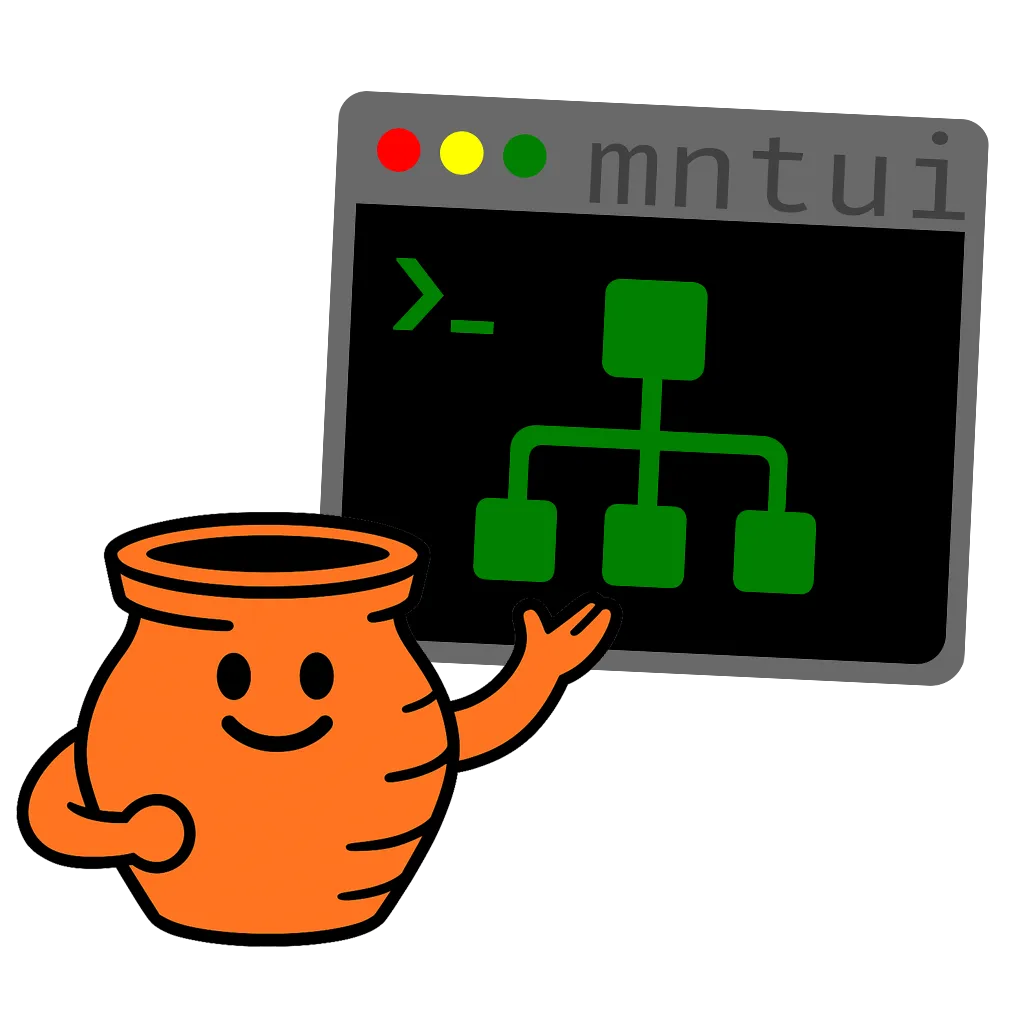

mntui
mntui - Simple UI for FSTAB in Linux
I wanted to democratize mount management in Linux and sometimes you just need a tool that doesn’t care about your distro, your init system, or whatever’s half-working around you.
mntui is that kind of tool - a minimal, trusted mount utility that reads straight from the kernel and edits your /etc/fstab safely, without bringing any friends.
It should run the same on a polished workstation or in a panic shell with only busybox and hope.
What I started with
I wanted a mount manager that doesn’t depend on anything else - no util-linux, no systemd, no dynamic libraries quietly missing at the worst possible time.
Just a single static binary that:
- Lists what’s mounted right now (via
/proc/self/mountinfo) - Reads and validates
/etc/fstab - Lets you mount, unmount, and test entries safely
- Works even when
/usrisn’t mounted yet
That’s it. Simple enough to trust. Portable enough to live on a rescue USB.
Ohh ‘kay, why though?
Most systems today assume the rest of userspace is intact - until it isn’t.
In an initramfs, a chroot, or a stripped-down container, the usual helpers (findmnt, lsblk, blkid) just vanish.
mntui keeps working anyway.
It’s both a recovery tool and a way to learn how Linux actually tracks mounts - through /proc, /sys, and the VFS namespace logic that glues it all together.
If nothing else, it’s a great excuse to poke around /proc/self/mountinfo and realize just how many layers there are between “mount this drive” and “why won’t this boot”.
The Guiding Rules
| Principle | Meaning |
|---|---|
| Kernel truth only | The kernel already knows what’s mounted - trust it. |
| Static & portable | Compiled with musl, runs anywhere that speaks ELF. |
| Fail-safe editing | /etc/fstab changes are atomic, validated, and backed up. |
| Readable output | Human-readable by default, JSON when you need automation. |
| Security-first | Root only when required; read-only mode for everyone else. |
| Graceful degradation | Keeps running even if /sys isn’t there. |
No magic daemons, no D-Bus, no guessing.
The Shape of It
+---------------------------+| (Optional TUI Frontend) || ncurses / Textual client || consumes JSON output |+---------------------------+| mntui-core (C) ||---------------------------|| mountinfo.c - /proc || sysfs.c - /sys || fstab.c - /etc || actions.c - syscalls || json.c - encoder || main.c - CLI/TUI |+---------------------------+| Linux Kernel APIs || mount(2), umount2(2), || statfs(), open(), etc. |+---------------------------+The end goal is a static ELF around 200–400 KB. Tiny enough to drop in an initramfs or even embed into a Docker image.
Technical Aims
- Parse
/proc/self/mountinfodirectly and safely - Spot mismatches between live mounts and
/etc/fstab - Perform atomic writes when updating
fstab - Call
mount(2)andumount2(2)directly, no external tools - Expose structured JSON for optional frontends or scripts
Basically: findmnt meets nmtui, but doesn’t explode when you forget to mount /usr.
Progress So Far
Research & Kernel Digging – in-progress
Figure out how to talk to the kernel directly - how `/proc/self/mountinfo` and `/sys/class/block` describe what’s actually mounted, and how that ties into `mount(2)` and `umount2(2)`. Minimal C code, no dependencies. Learn it properly before touching anything.
I’m still somewhere between discovery and architecture, but the core idea feels right: build one binary that always tells the truth about what’s actually mounted.
Why It Feels Right
Because when a system’s half-alive, it’s comforting to have one command that doesn’t lie. That’s the whole philosophy in a single line:
When nothing else runs,
mntuishould still tell the truth about your filesystems.
If You Want to Dig Deeper
If you want to go down the same rabbit hole:
man 5 proc→ the/proc/self/mountinfospecman 2 mount→ what all thoseMS_*flags mean- I guess that there are other sources, but maybe you search for things now, or maybe you don’t, or maybe you don’t care, or maybe you don’t care about caring - That’s so cool how you don’t care… wow, that’s amazing! That’s incredible!
What were we talking about? I am tired now.
K thx! Bye!
← Back to projects